Have you ever looked at your medicine cabinet and felt overwhelmed? You’ve got pills for your blood pressure, your diabetes, your cholesterol, maybe something for anxiety or sleep, plus vitamins, herbal supplements, and that OTC painkiller you grab when your back acts up. Now imagine trying to keep track of when to take each one, what they do, and whether they’re safe together. It’s not just confusing-it’s risky.
What Exactly Is Medication Therapy Management?
Medication Therapy Management, or MTM, is a free service designed for people who take multiple medications and have chronic health conditions. It’s not about getting your prescription filled. It’s about making sure every pill you take is working the way it should-without causing harm.
MTM is led by pharmacists, not doctors. These aren’t your average pharmacy staff. They’re trained specialists who spend 30 to 60 minutes with you, one-on-one, going through every single medication you use. They check for dangerous interactions, see if you’re taking things correctly, and even find cheaper alternatives if your bills are too high.
This service is built into Medicare Part D plans, so if you’re on Medicare and take several prescriptions, you may already qualify. You don’t need to ask for it-your plan will reach out if you’re eligible. But you can also call your plan directly and ask: "Am I enrolled in MTM?"
Who Qualifies for MTM Services?
To get MTM through Medicare Part D, you need to meet three clear criteria:
- You have three or more chronic conditions like diabetes, heart disease, asthma, depression, or high blood pressure.
- You’re taking eight or more Medicare Part D medications-that includes all prescription drugs covered under your plan.
- Your total yearly cost for these medications is over $4,430 (as of 2025).
These numbers aren’t random. They’re set by the government to target people at the highest risk of medication errors. If you’re taking five drugs for heart disease and three for mental health, plus a painkiller and a sleep aid, you’re likely eligible-even if you don’t realize it.
And if you’re not able to talk to the pharmacist yourself, your caregiver, family member, or trusted friend can join the session on your behalf. The goal is to make sure your medication plan is safe and understood by someone who’s with you every day.
What Happens During a Medication Review?
Your first MTM session is called a Comprehensive Medication Review (CMR). It’s not a quick chat. It’s a full audit of your health and medicines.
Here’s what you can expect:
- You’ll get a Personal Medication Record-a simple, updated list of everything you take: prescriptions, over-the-counter drugs, vitamins, herbs, even supplements like fish oil or melatonin. Many patients are surprised to find their pharmacist knows about their CBD gummies or turmeric pills, which they never told their doctor.
- You’ll talk through each medication. Why are you taking it? Do you feel it’s helping? Are you skipping doses because it’s too expensive or causes side effects? The pharmacist listens. They don’t judge.
- They’ll spot problems. Maybe your blood pressure pill makes you dizzy, so you stop taking it. Maybe your antidepressant clashes with a supplement you’re using. Maybe you’re taking two drugs that do the same thing-doubling your risk of side effects.
- You’ll get a To-Do List. This isn’t just notes. It’s a clear action plan: "Call your doctor about switching this pill," "Try this cheaper brand," "Start using a pill organizer," "Monitor your blood sugar after this new med."
The whole session can be done over the phone, video call, or in person at your pharmacy. No extra cost. No hidden fees. Just honest, personalized advice from someone whose job is to understand your medicines better than anyone else.
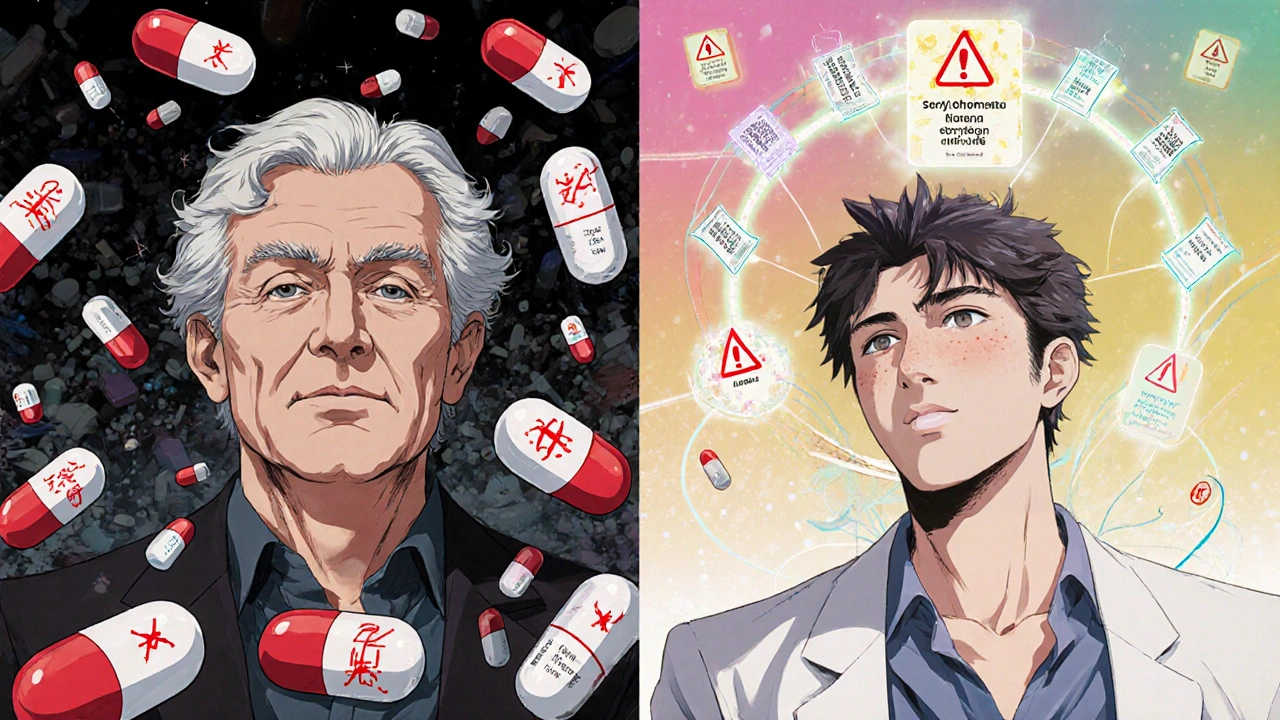
Why Pharmacists? Why Not Your Doctor?
Doctors are amazing. But they’re busy. They might see you for 10 minutes once every three months. They focus on your diagnosis, your labs, your symptoms. They don’t have time to dig into every pill you’ve picked up from five different pharmacies over the past year.
Pharmacists? That’s their whole job. They’re the medication experts. They know how drugs interact, how they’re absorbed, how long they last, and what side effects to watch for. They’ve seen what happens when patients mix a heart med with a common cold syrup. They’ve helped people cut their monthly drug bill in half by switching to generics.
MTM isn’t about replacing your doctor. It’s about filling the gap. Your doctor treats your condition. Your pharmacist makes sure your treatment doesn’t backfire.
What About Ongoing Support?
One review a year isn’t enough. That’s why MTM includes quarterly Targeted Medication Reviews (TMRs). These are shorter check-ins-usually triggered by a change in your meds, a new diagnosis, or if you’ve had a hospital visit.
For example: if you start a new antidepressant, your pharmacist will follow up in 6-8 weeks to see how you’re feeling. Are you sleeping better? Any nausea? Did you forget to take it last week? These aren’t just calls-they’re real interventions. They can call your doctor to adjust the dose, suggest a different time to take it, or even help you get financial assistance.
And if you’re struggling to remember your pills, they’ll help you set up reminders, use pill boxes, or link your meds to daily habits like brushing your teeth or eating breakfast.
Real Benefits-Not Just Theory
Studies show MTM works. People who use it:
- Take their meds more consistently-up to 20% better adherence.
- Have fewer emergency room visits and hospital stays.
- Save money-on average, $300-$600 per year by switching to lower-cost options.
- Feel more in control of their health.
One woman in Texas, 72, took 11 medications. She was dizzy all the time. Her pharmacist found she was taking two drugs that both lowered her blood pressure-and she didn’t even know it. After switching one out, her dizziness vanished. Her monthly cost dropped by $180.
A man in Florida with diabetes and depression was skipping his insulin because he was too tired. His pharmacist connected him with a free medication delivery service and set up voice reminders. He started checking his sugar daily. His A1C dropped from 9.2 to 7.1 in six months.
These aren’t rare cases. They’re what happens when someone takes the time to understand your whole medication picture-not just one piece of it.
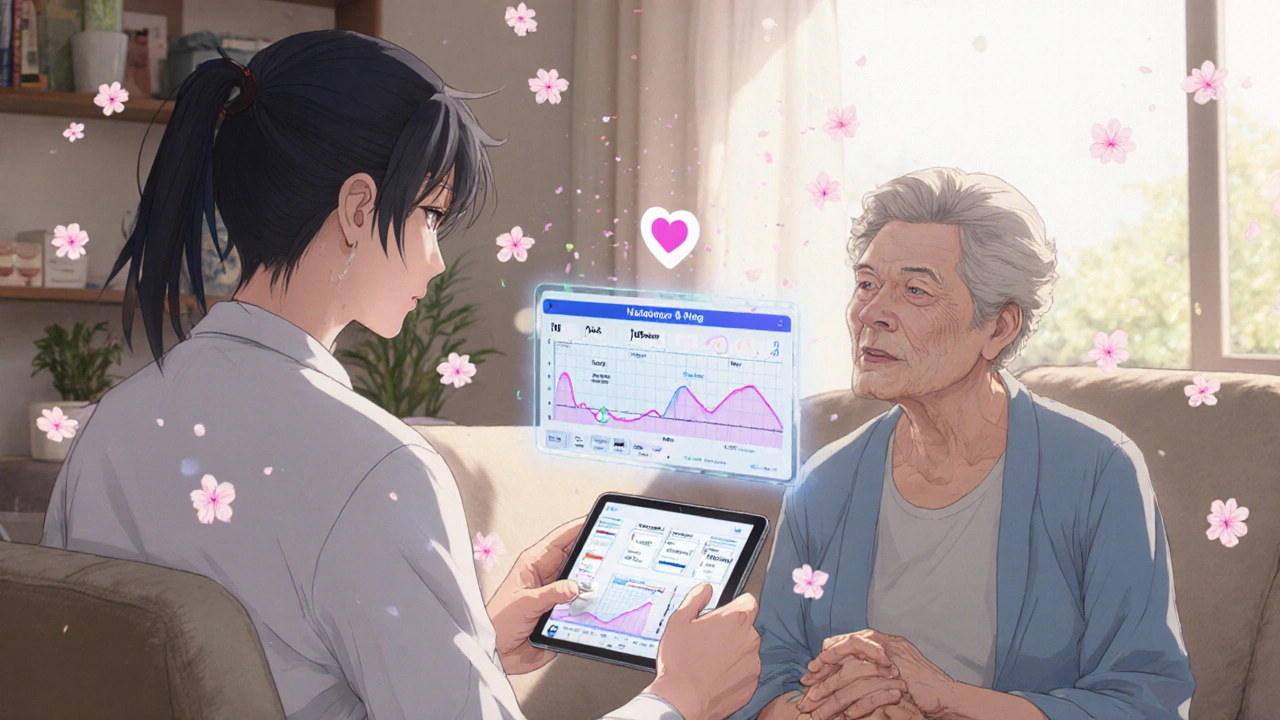
What If You Don’t Qualify for Medicare MTM?
Even if you’re not on Medicare, you might still be able to get MTM services. Some private insurers, Medicaid programs, and employer plans now offer them. Community pharmacies, especially those linked to clinics or hospitals, are starting to offer MTM for a small fee or even free.
Ask your pharmacist: "Do you offer Medication Therapy Management?" If they say no, ask if they can refer you to one who does. You can also check with your state’s pharmacy association-many now have directories of MTM providers.
And if you’re caring for an older parent or loved one, you can often request MTM on their behalf. Just make sure you have their permission and a list of their meds.
How to Get Started
If you think you might qualify, here’s what to do:
- Check your Medicare Part D plan’s website. Look for "Medication Therapy Management" or "MTM" under benefits.
- Call the number on your plan card and ask: "Am I eligible for MTM?" If yes, ask when your first review is scheduled.
- Prepare for your session. Write down: all your meds (including supplements), what they’re for, how often you take them, and any problems you’ve had (side effects, cost, forgetting doses).
- Bring someone with you-a family member, friend, or caregiver. Two sets of ears hear more than one.
- Ask questions. Don’t be shy. "Is this really necessary?" "Is there a cheaper option?" "What happens if I skip this one?"
MTM isn’t a one-time fix. It’s an ongoing partnership. The more you engage, the better your results.
Why This Matters More Than Ever
People are living longer. More of us are managing multiple chronic conditions. And the number of medications per person keeps rising. The average senior takes six prescriptions. Some take 15 or more.
That’s not just a health issue-it’s a safety issue. Every extra pill increases the chance of a bad reaction. Every missed dose weakens your control over your disease. Every dollar spent on a drug that doesn’t help is money wasted.
MTM is the simplest, most effective way to fix that. It doesn’t require a new app, a wearable, or a complicated system. Just a conversation with someone who knows your pills better than you do.
You wouldn’t drive a car without checking the oil, the brakes, and the tires. Why would you manage your health any differently?
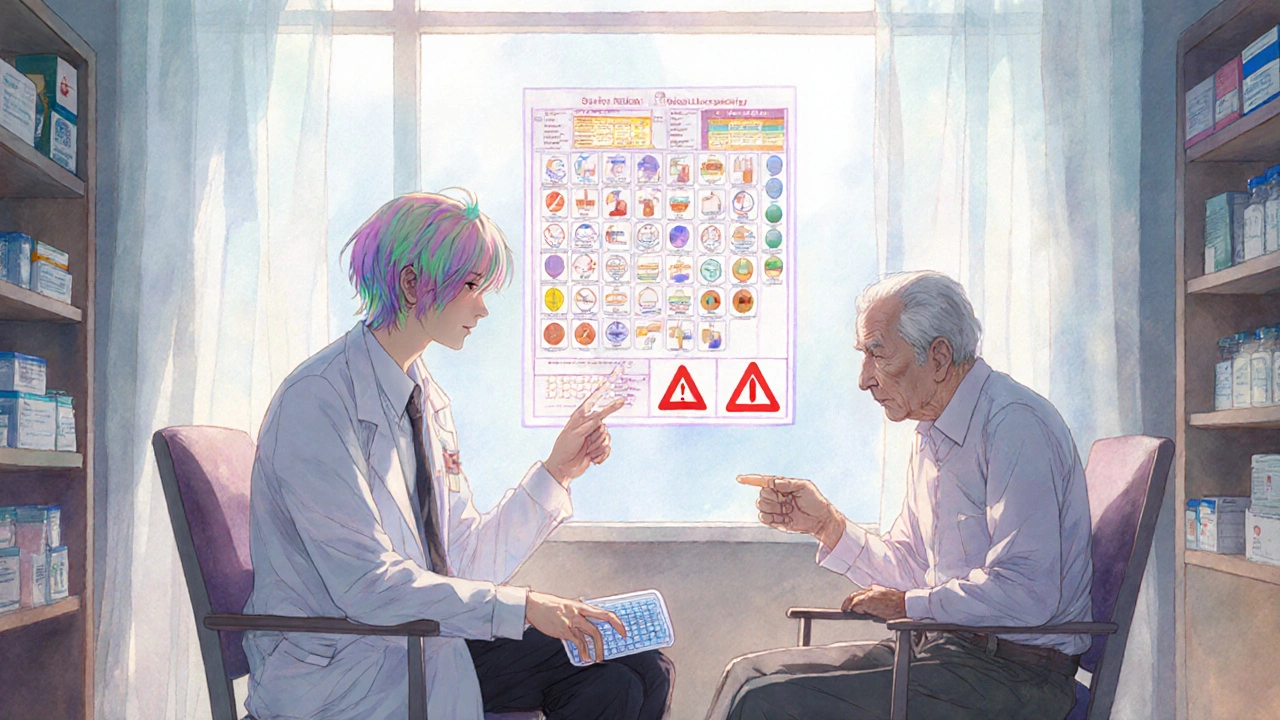


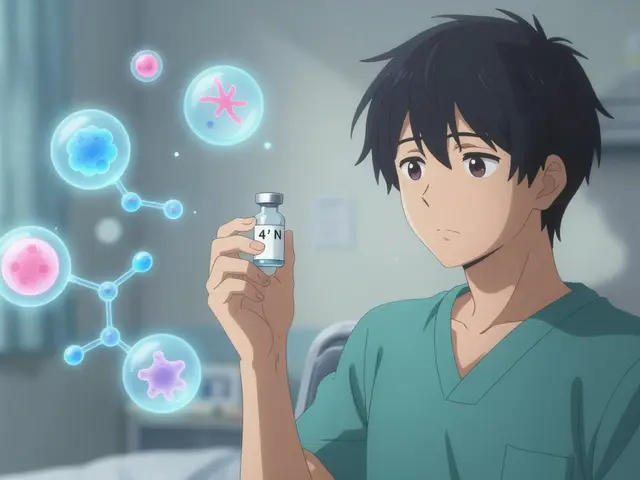


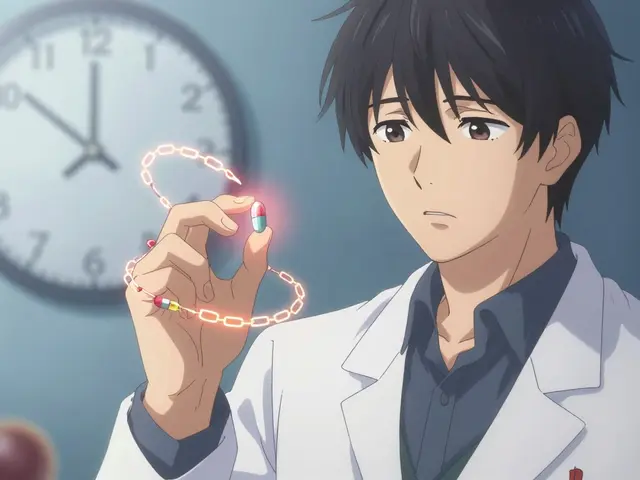
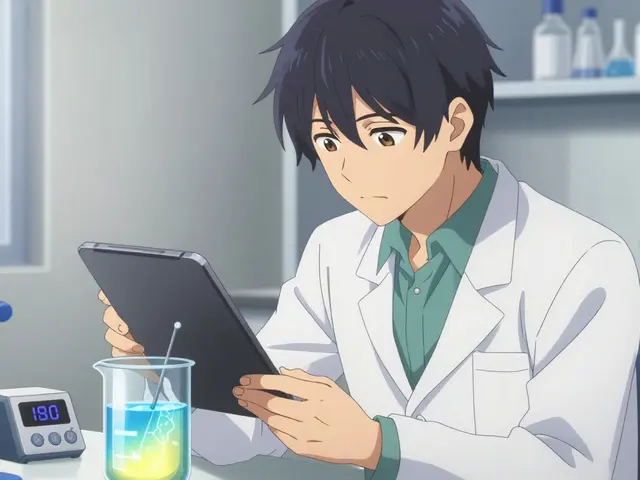
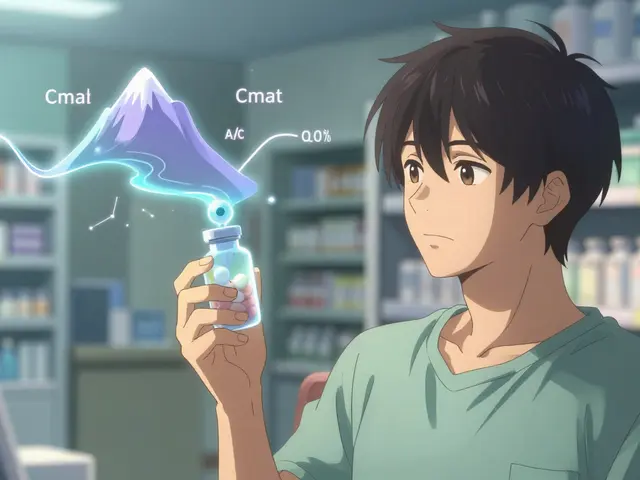
Gary Hattis
Man, I wish my grandma knew about this sooner. She was taking seven meds and a whole bunch of ‘natural’ supplements that were making her dizzy. Her pharmacist caught that her blood pressure pill was doubling up with a cheap herb she bought online. After the MTM session, she cut her monthly bill by $200 and stopped falling in the bathroom. Why isn’t this advertised on TV? It’s like the system wants us to suffer before we get help.
Pharmacists are the real MVPs here. Not doctors, not nurses - the guy behind the counter who remembers your name and your meds better than your own family does.
Erica Cruz
Oh please. This is just another Medicare cost-shifting scheme disguised as ‘help.’ The government doesn’t care about your health - they care about reducing hospital reimbursements. MTM is a way to offload the responsibility of medication management onto overworked pharmacists who make $15 an hour. Meanwhile, the same companies that run these plans are jacking up drug prices by 20% every year. This isn’t care - it’s PR.
And don’t get me started on ‘personal medication records.’ I’ve seen those. Half the time they’re missing the OTC stuff patients lie about because they’re embarrassed. It’s a paper tiger with a fancy name.
Shante Ajadeen
I work at a senior center and we’ve had three people go through MTM this year. All of them cried during their session - not because they were upset, but because someone finally listened. One lady said she’d been skipping her diabetes med because it made her stomach hurt, but she was too scared to tell her doctor. The pharmacist switched her to a different one and gave her a free sample. She’s been stable for six months now.
You don’t need a fancy degree to know this matters. You just need to care enough to ask, ‘Are you taking all your meds okay?’
Alyssa Lopez
MTM? More like MISTAKE. They want us to hand over our whole med list to some pharm tech who can’t even spell ‘hypertension’? And this is free? Yeah right - it’s just a way for Big Pharma to get their drugs into the system under the guise of ‘optimization.’
My cousin got her meds ‘reviewed’ and they pulled her gabapentin because ‘it wasn’t medically necessary’ - turns out she was using it for nerve pain from her MS. Now she’s in the ER again. Thanks, government.
Also, why do they always say ‘you qualify’ like it’s a prize? It’s not a contest. It’s survival.
Deepa Lakshminarasimhan
Did you know the government only picks people who take 8+ meds because they’re easier to control? The real goal is to track your behavior through your pill schedule. They’re building a database. Every time you skip a dose, they log it. Next thing you know, your insurance rates go up or you get flagged for ‘non-compliance.’
I’ve seen it happen. My neighbor’s mom got her Medicare benefits reduced after the MTM review because she ‘didn’t follow the plan.’ Turns out she was just too broke to afford the new meds they pushed on her.
They say ‘free service’ - but nothing’s free when you’re giving up your autonomy.
Johnson Abraham
lol i thought this was a joke at first. so now my pharmacist is my therapist? cool. next they’ll make him check my mood and ask if i’m feeling safe.
my grandma takes 12 pills. she forgets half of them. i put em in a box with pictures. she’s fine. no ‘review’ needed. this whole thing feels like corporate bs to make pharmacists do free work.
also why is everyone acting like this is new? my grandpa got his meds checked by the pharmacist back in 1998 and nobody made a big deal.
btw i still take tylenol with my blood pressure med. and i’m still alive. 🤷♂️
Esperanza Decor
I used to think I was fine with my meds until I sat down with a pharmacist for my first CMR. I had no idea I was taking two different drugs that both lowered my heart rate - and I was taking them at the same time. I thought my fatigue was just aging. Turns out, it was a dangerous interaction.
She didn’t just fix my meds - she gave me a handwritten checklist, a pill organizer, and a phone number to call if I felt weird. No sales pitch. No judgment. Just, ‘You’re not alone in this.’
I told my sister about it. She’s on Medicare too. She cried when she heard it was free. She said, ‘Why didn’t anyone ever tell me this existed?’
It’s not magic. It’s just someone paying attention. And in a system that treats us like numbers, that’s revolutionary.
dace yates
I’m curious - do MTM sessions ever lead to changes in prescribing patterns? Like, do pharmacists ever push back on doctors who overprescribe? Or do they just adjust the patient’s behavior while leaving the doctor’s decisions untouched?
I’ve seen too many cases where a patient is told to ‘take fewer pills’ but the doctor keeps adding new ones for new symptoms. It feels like a band-aid on a broken leg.
Danae Miley
There’s a critical flaw in the eligibility criteria: it’s based on medication count and cost, not clinical complexity. A patient with three chronic conditions but only five meds due to excellent disease control may be excluded, while another with five conditions and 12 meds - including redundant, ineffective drugs - qualifies. This incentivizes polypharmacy, not optimization.
Additionally, the $4,430 threshold is arbitrary and inflation-adjusted inconsistently across plans. Some beneficiaries pay more out-of-pocket than the threshold suggests due to tiered formularies. MTM should be needs-based, not cost-based.
Charles Lewis
Allow me to offer a broader perspective on Medication Therapy Management as a model of integrated, patient-centered care. The historical evolution of pharmacy practice has shifted from a transactional dispensing function to a clinical service role - and MTM represents a significant milestone in this transition.
When we consider the fragmentation of the American healthcare system, wherein primary care, specialty care, pharmacy, and social services operate in silos, MTM emerges not merely as a benefit but as a structural intervention that bridges these gaps.
It is not simply about adherence or cost reduction - though those are measurable outcomes - but about restoring agency to the patient through education, empathy, and continuity. The pharmacist, in this context, becomes a longitudinal care coordinator, a role traditionally under-resourced and under-recognized.
One might argue that this service should be expanded beyond Medicare to include Medicaid, VA, and private payers. The evidence base is robust. The ethical imperative is clear. The question is not whether MTM works - but why we are not scaling it with urgency.
Renee Ruth
Let’s be real - this is all just a front. The real reason they’re pushing MTM is because they’re trying to cover up how many seniors are being prescribed dangerous combinations of drugs by predatory clinics and pill mills. The ‘review’ isn’t to help you - it’s to create a paper trail so when someone overdoses, they can say, ‘We warned them.’
I know a woman whose husband died after his ‘MTM review.’ They told him to stop his pain med cold turkey because it ‘wasn’t necessary.’ He had a seizure and never woke up.
They’re not saving lives. They’re covering their asses.
Samantha Wade
MTM is not just a service - it’s a moral obligation. The complexity of modern pharmacotherapy has outpaced the capacity of primary care. We cannot continue to treat medication management as an afterthought. This is not a perk - it is a lifeline.
For every patient who saves $600 a year, there is a family that avoids a hospitalization, a caregiver who gets a night’s sleep, a senior who regains independence. This is preventative care at its most human.
To those who dismiss it as bureaucratic: imagine if your child had a chronic illness and you were expected to navigate 12 medications without guidance. Would you still say it’s unnecessary?
Advocate for it. Demand it. If your plan doesn’t offer MTM, call them until they do. Your life - or someone you love - may depend on it.